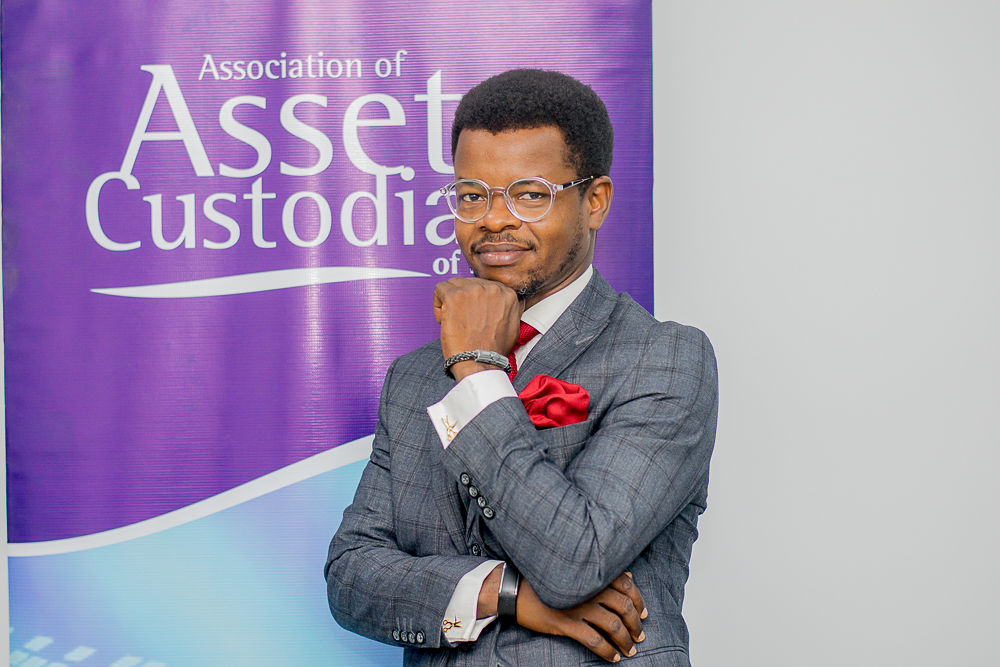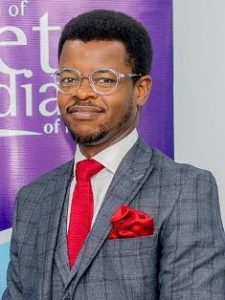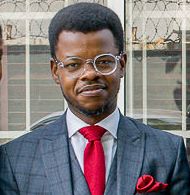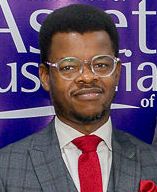
02 Feb Embedded in Nigeria’s wide infrastructural gaps are huge opportunities – AACN President
Mr. Biodun Adebimpe was recently elected President of the Association of Asset Custodians of Nigeria (AACN), to pilot the affairs of the association for the next two years. In this interview, Adebimpe provides crucial insight on his plans for the association, the investment landscape in Nigeria and the role asset custodians are playing in driving growth and development of the financial market in Nigeria. Excerpts!
Congratulations on your election as the new President of the Association of Asset Custodians of Nigeria (AACN)! Can you share with us some of the goals you have set for yourself during your tenure?
Thank you very much. And I also thank all my colleagues at the Association for their overwhelming confidence in me. First of all, I must commend my predecessor and her team for the successes recorded during their tenor of office. They have laid a good foundation for us to build on.
When you said that I should share some of the goals I have set for myself during my tenure, I’ll like to quickly correct that notion. A tree doesn’t make a forest. Whatever goals we’re going to set will be a collective responsibility for the team; I mean the new Executive Committee.Of course, we do have some very clear advocacy issues – current and new ones, to pursue as quickly as possible in line with AACN’s broad objectives as stated in our constitution.
We intend to convene a strategy session of the association where we’ll agree on critical goals to set for ourselves and how to achieve them.At the core of everything we’ll be doing is teamwork.
Although there are more than 20 money deposit banks in the country, some of which offer custody services, AACN has just eight member-banks. What steps will you be taking to attract more membership?
AACN is a trade group and not the normal association of individuals or a social group … laughs. Our objective is not about growing our membership base like you would expect a regular association to do. Instead, we’re a group of specialized professionals within the capital market, representing our various institutions.
According to the Securities and Exchange Commission’s regulations, every capital market operator must, emphasis on MUST, be a member of their trade group. Yes, there are over 20 DMBs in Nigeria but only 8 of them currently offer custody services and all the 8 are members of the AACN in line with SEC’s regulations.
And of course, the more the merrier. We will be very glad to welcome other banks that may decide to set up custody business into the fold. This will be subject to their internal decisions and regulatory approvals which AACN cannot influence in anyway.
Your flagship event, the AACN Annual Nigerian Investors Day, did not hold this year understandably due to the Covid 19 crisis. What is the outlook for 2021?
Hmmh! I sincerely wish I had a crystal ball and could predict what would happen in the next few weeks or months. We live in a VUCA environment – volatile, uncertain, complex and ambiguous. We were fully prepared to host this year’s event in May. I recall we had picked a date, invited speakers, sent out save-the-date and other preparatory activities to ensure a smooth outing. Then came the pandemic and we couldn’t host the event in London like we had done in the last 8 years. Remember that our audience at the event comes from several countries of the world.

Having said that, we’ll watch how things progress around the world, especially as the pandemic subsides given hopes of the availability of vaccines soon. If we’re unable to host a physical event, we’ll surely explore hosting the event virtually.
Several events like ours are now held virtually and they turnout to be great successes with almost all the benefits of attending them physically. My colleagues and I will look into this possibility along with our critical stakeholders. Whatever we decide we’ll be related to our media partners.
Not everyone in Nigeria understands what investor and custody services entail. Can you please provide an expert insight, especially on how individuals and the various market segments can tap into the benefits derivable from the sector?
The concept of custody of securities or what some other institutions refer to as securities/investor services has to do with the gamut of activities that take place after a financial security transaction has been concluded i.e. post-trading activities.
In securities market parlance, a custodian is a person or entity selected to hold and protect another person’s or entity’s funds or investments through either direct or indirect means. A custodian is a financial institution that holds customers’ securities either in electronic or physical form for safekeeping in order to minimize the risk of their theft or loss.
Since we are responsible for the safety of assets and securities that may be worth hundreds of millions or even billions of dollars, custodians generally tend to be large and reputable firms. A custodian is sometimes referred to as a “custodian bank.”

In addition to holding securities for safekeeping, most custodians also offer other services, such as account administration, transaction settlements, collection of dividends, interest payments and maturity proceeds, proxy voting services, tax support, and foreign exchange. The fees charged by custodians vary, depending on the services that the client desires. Most custodians in Nigeria charge monthly custody fees that are based on the aggregate value of a client’s portfolio investments in their custody generally referred to as Assets Under Custody (AUC).
Would you say that asset custodianship has evolved with technological advancement? In other words, how has the sector harnessed the power of technology for better service delivery?
Absolutely, yes. Like I mentioned earlier, the ways and manners in which securities are traded, settled and safe-kept have evolved with time. Most securities transactions are now done electronically. Therefore, custodians leverage off best-in-class technological platforms to provide efficient services to our clients. Long gone are the days when things were run off spreadsheets. We use core platforms which can be integrated with other market and client platforms. Aside SWIFT, which is a member-owned cooperative that provides safe and secure financial transactions for its members, custodians now integrate with key market infrastructures like the Central Securities Depositories (CSDs) through application programming interface (APIs). Just to mention a few.
To what extent would you say that the coronavirus pandemic affected the custody subsector in Nigeria?
The custody industry is clearly not an island and cannot be totally rein-fenced from whatever shocks that hit the macroeconomic environments both locally and globally. We’re custodians of investment securities and to the extent that tougher economic environments make it difficult for people to save and invest, the custody industry will be affected.

On the foreign portfolio investors (FPIs) side as well, the story has been the same, if not worse. With Nigeria’s FX earnings significantly impacted by the pandemic and low-yield environment, we have seen a record decline in our AUCs.
Over the past decade, we have hardly seen either the entry or exit from the banking sector in Nigeria. What does that suggest to you?
I’m not sure I fully understand your question. If you mean entry or exit of players such as new or existing banks, then that may not be totally correct. The Central Bank of Nigeria has been issuing different types of banking licenses over the past years: merchant banks, payment service banks (PSBs) etc.
I agree that Nigeria may not have recorded much progress in terms of foreign direct investments (FDIs) even as recent reports of the National Bureau of Statistics suggest due to obvious challenges, but we keep seeing new players within the banking sector in different forms and shapes.
Nigeria is just recovering from the devastation caused by the covid 19 pandemic and has now plunged into a recession, the second time in five years. How have these developments affected the banking sector? Also, paint a picture for us on the impact of these developments on the inflow or outflow of Foreign Direct Investment and investments in general!
Like I said before, no sector of our economy is totally immuned to macroeconomic shocks such as the Covid-19 pandemic. The banking sector has seen significant reduction in investment flows whether FDIs or FPIs and this isn’t peculiar to Nigeria. It is what it is.
“I strongly believe that our wide infrastructural gaps across various sectors all present opportunities”
We do hope that with all hands on deck, we can turn the corner as quickly as possible.
Amid the pandemic, what positives does Nigeria still offer in terms of economic opportunities?
With our very young demography, pandemic or no pandemic, Nigeria remains the toast of discerning investors. Imagine what has been happening in the contributory pension space with pension assets going over NGN11.5 trillion despite the pandemic and the attendant recession.
We have our issues. Yes and I strongly believe that our wide infrastructural gaps across various sectors all present opportunities. Health care, entertainment media and technology, agriculture are actually some of the gainers.
Endless economic opportunities exist in Nigeria, especially those sectors that service the youth directly. They are too numerous to list. We just need to fix some of our issues, which are well known to unlock these opportunities.
As members of ACCN, you collectively share common goals and ideals, but once you return to your various organizations, you become competitors. How do you strike a balance?
Laughs… It’s very easy. We wear different caps at different times and as astute professionals, we strike the balance so well. Fortunately, we all work in organizations whichcomply with global standard rules of engagement and the AACN has a code of conduct.
We collaborate to develop our market knowing that a share of a bigger pie could be better than you having the entire small pie. Hope you understand what I mean? We draw the line so well, collaborate and compete healthily.

Also, the fact that we serve a very financially savvy segment of the market make balancing the act easy for us. Our clients are typically well-informed investors.
Will AACN be considering an enlightenment campaign in 2021 to create more awareness about custody services in the country?
Absolutely! This is a course we’re sold to as a key pillar of our objectives as a capital market trade group. We’ve engaged in different enlightenment campaigns in the past, both locally and internationally and we will do more within the reality of the new normal we find ourselves. We also collaborate with other key market infrastructures and regulators to do this.
Can you tell us a little bit about yourself?
Well… I’m Biodun Adebimpe, head of Custody Services for Rand Merchant Bank Nigeria and the newly elected president of the AACN. I’ve worked for a couple of the custodian banks in Nigeria and I’ve been actively involved in various market advocacy efforts in Nigeria and other West African countries over the past years.
Was banking your preferred career choice from the onset?
Oh yes! As a child, I was inspired by a friend of my dad who was a senior staff of one of the leading commercial banks in Nigeria during their time. I was in Commercial class in secondary school and went on to study Accounting at the university. So, yes. I’ve always had interest in financial services.
What do you think the banking industry in Nigeria would look like in ten years from now?
Ten years is a very long time. In less than ten years from now, with blockchain, DLs, AIs, virtual currencies, fintechs and so on, I see an industry that will be completely different from what we have now. It’s mind blowing!
I personally think that what has happened to the media space, may happen to the banking industry as well. I see a democratized industry where banking services will be offered by non-traditional banking entities as it’s already happening in other parts of the world. There’s no way Nigeria won’t play catch up.
Cued from Business Traffic: https://businesstraffic.com.ng/embedded-in-nigerias-wide-infrastructural-gaps-are-huge-opportunities-aacn-president/

Sorry, the comment form is closed at this time.